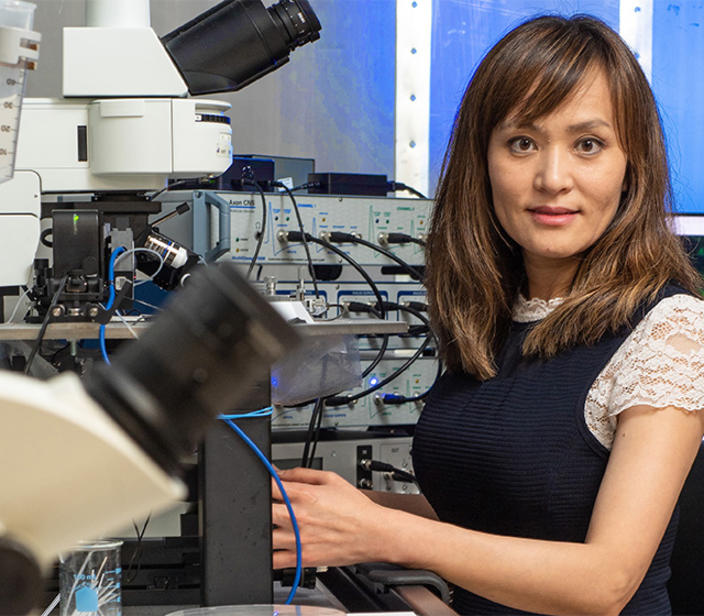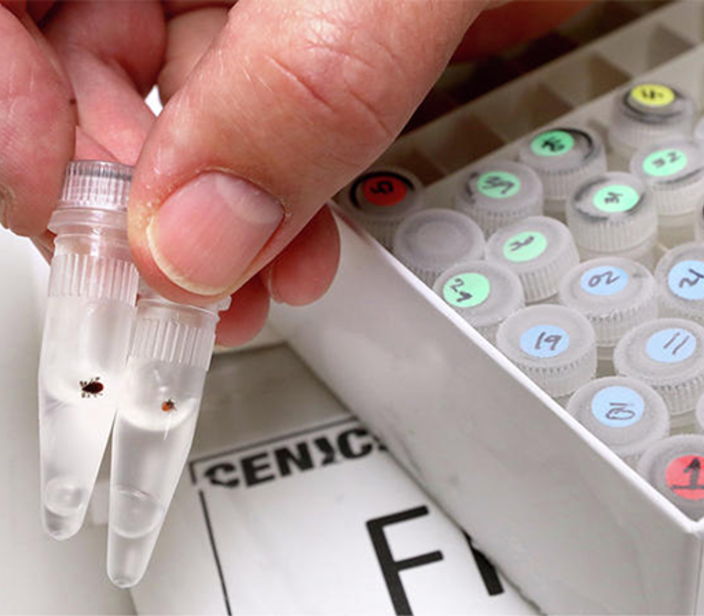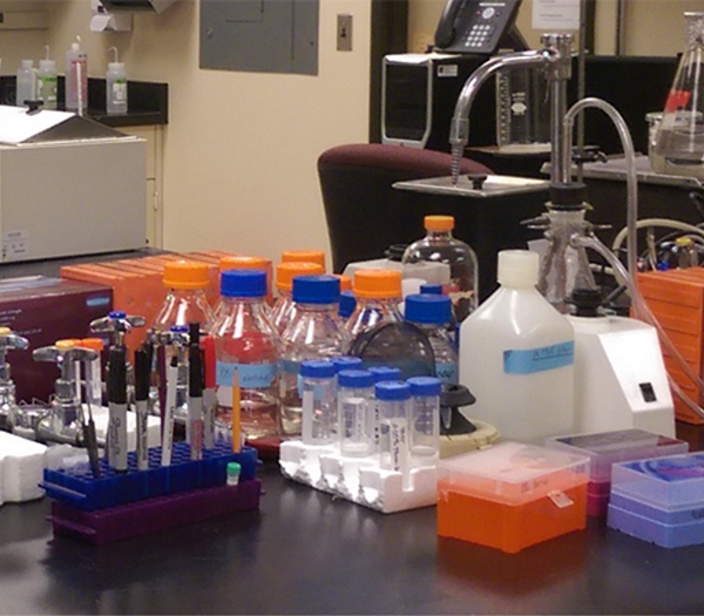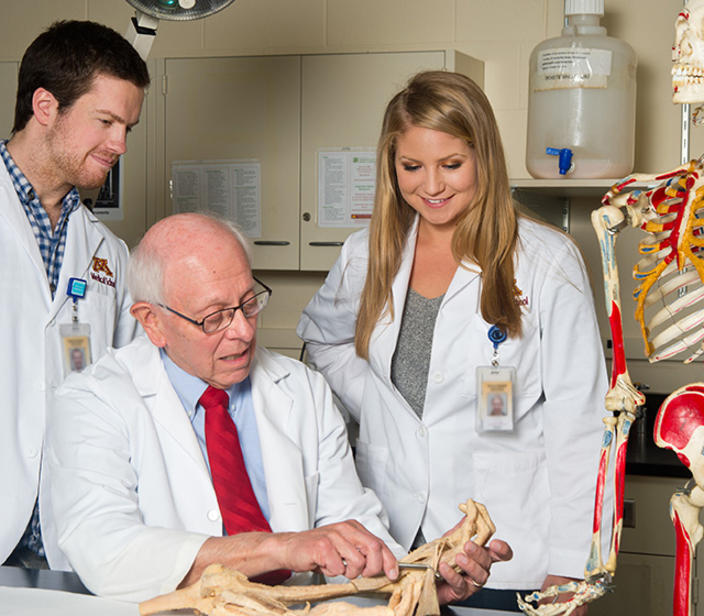Research
Explore our world-class laboratories below and see how our researchers are making an impact. Check each lab to see current studies.
Research Labs
Research in Biomedical Sciences emphasizes Neuroscience and health issues relevant to rural and Native American communities. In addition, a wide variety of multidisciplinary research is being conducted from cancer biology to the biology of parasites, with ample opportunities for collaboration across disciplines. We collaborate with investigators in the Swenson College of Science and Engineering and College of Pharmacy in Duluth as well as colleagues in colleges and schools of the University of Minnesota on the Twin Cities Campus.
Training opportunity:
Are you a student who is interested in gaining experience in research at the Medical School, Duluth campus? Please fill out the appropriate Google Form link below and we will contact you to set up a meeting.
Interest in the Medical School Research for Undergraduate Students
Interest in the Medical School Research for Medical Students
Top-Notch Research Facilities
The Department of Biomedical Sciences has three floors of laboratories and office space with animal care facilities, BSL2 cell culture facilities, Drosophila lab and major core equipment available for shared usage. This core equipment includes laser scanning confocal scope, cell sorter, flow cytometer, ultracentrifuges, HypOxygen cell culture system, Seahorse XF96 analyzer, Phosphorimager, Licor Odyssey imager, and standard molecular biology facilities and equipment. Laboratory facilities in the College of Pharmacy Duluth and the Swenson College of Science and Engineering complement and add to the available resources. In addition, faculty have complete access to core facilities on the Twin Cities campus of the University of Minnesota including genomics and next-generation sequencing, proteomics, data storage/processing and bioinformatics, microscopy, flow cytometry, and viral vector cloning services, as well as the complete collection and services of the Health Science Library of the University of Minnesota.
Neuroscience
Visit our Neuroscience North page to learn more about our new program bringing together collaborators from across the Northland.
Dr. Lester Drewes
Multidisciplinary Research
Environment and Health
Cancer Biology
Infectious Disease and Immunology
Lyme Disease
Toxicology
Educational Innovation
AHC Duluth Research Seminar Series
Wednesdays, 3:30-4:30 pm
The AHC Duluth Research Seminar Series is a joint venture of Medical School, Duluth Campus, and the College of Pharmacy, Duluth Campus. National experts in biomedical research are invited to present state of the art research on multidisciplinary research topics.
AHC Lab Bench Talks Series
Mondays, 3-4 pm
This series aims to foster interdisciplinary collaborative research efforts and provide a mechanism for faculty and trainees to present their ongoing research. During the academic year, presentations are scheduled on a weekly/semi-weekly basis that includes research projects, preliminary data (data club style), a practice research talk, or journal articles with recent discoveries or techniques that would interest a broad range of scientists.



